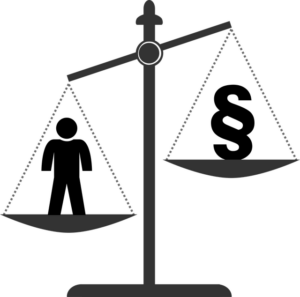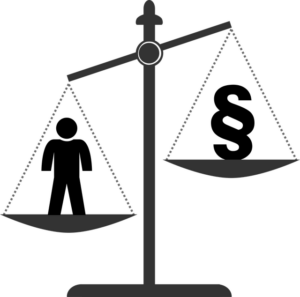Do you know what to do when someone enters your property without your permission? Trespassing is a serious matter, and it can cause damage, loss, and harm to you and your property. But can you sue for unauthorized entry? The answer is yes, and in this article, we will discuss the elements of trespassing, legal defenses for trespassing, consequences of trespassing, and how to file a lawsuit for trespassing.
Trespassing is defined as the act of entering someone else’s property without their permission. There are different types of trespassing, such as criminal trespassing, civil trespassing, and constructive trespassing.
Criminal trespassing is a criminal offense, and it involves entering someone else’s property with the intent to commit a crime. Civil trespassing, on the other hand, is a civil offense, and it involves entering someone else’s property without their permission, but without the intent to commit a crime.
Constructive trespassing is a legal term that refers to when someone enters your property without your permission, even though they have a legal right to do so.
Key Takeaways
- Trespassing is defined as entering someone else’s property without permission and can result in legal action being taken against the trespasser.
- Essential elements of trespassing include knowledge of entry, intent to enter, and actual entry.
- Legal defenses for trespassing include consent, necessity, and public policy.
- Prevention methods such as posting signs, installing fences or barriers, and using security systems can help property owners protect their rights.
Definition and Types of Trespassing
Let’s dive into the different types of trespassing and what they entail. Trespassing is the act of entering someone’s property without their permission.
There are different types of trespassing, including criminal trespassing and civil trespassing. Criminal trespassing is when someone intentionally enters someone else’s property without permission and with the intent to commit a crime.
Civil trespassing, on the other hand, is when someone enters someone else’s property without permission, but without the intent to commit a crime. Civil trespassing can also occur when someone enters someone else’s property without permission and causes damage to the property.
This can include cutting down trees, damaging fences, or leaving trash on the property. Whether it’s criminal or civil trespassing, unauthorized entry on someone’s property can result in legal action being taken against the trespasser.
It’s important to understand the different types of trespassing and the consequences that come with it to avoid any potential legal issues.
Elements of Trespassing
When it comes to trespassing, there are three essential elements that must be present: knowledge of entry, intent to enter, and actual entry.
You need to know that you’re entering someone else’s property without permission, have the intention to do so, and actually make the entry.
These three factors are crucial in determining whether or not someone has committed a trespassing offense.
Knowledge of Entry
Knowing who entered your property without permission can be crucial evidence if you’re considering suing for trespassing. In order to establish a claim for trespass, you must prove that someone intentionally entered your property without your consent. This means that you must have knowledge of the entry.
It’s important to note that this knowledge doesn’t necessarily have to be firsthand. You can establish knowledge of entry through circumstantial evidence, such as security footage or witness testimony. However, if you’re unable to prove that someone entered your property without your consent, you likely won’t have a successful claim for trespass.
So, if you suspect that someone has entered your property without permission, it’s important to take steps to gather evidence and protect your legal rights.
Intent to Enter
To establish a claim for someone intentionally entering your property without consent, it’s essential that evidence is provided to prove the intent behind the entry. This means that you need to show that the person knew they were entering your property and did so with the intention of doing so. This can be difficult to prove, but there are a few ways to do so.
Firstly, you can show that the person had no legitimate reason to be on your property. This could be because they were not invited, or because they did not have permission to be there. Secondly, you can show that the person acted in a way that suggests they knew they were not supposed to be there. For example, if they tried to hide their entry or if they quickly left when they were discovered. By showing these things, you can build a case that the person intentionally trespassed on your property, and you may be able to sue them for damages.
To further understand the importance of intent to enter, take a look at this table:
| Evidence of Intent to Enter | Examples |
|---|---|
| Lack of legitimate reason to be on property | No invitation or permission to enter |
| Suspicious behavior | Hiding entry, quick exit upon discovery |
| Damage to property | Breaking or damaging locks, windows, or doors |
| Previous warnings or notices | Signs or verbal communication stating entry is not allowed |
| Prior incidents | Previous trespassing or criminal activity on property |
By using this table, you can see that there are many different ways to show that someone intentionally entered your property without consent. By gathering evidence and building a strong case, you may be able to recover damages for any harm that was caused. Remember, it’s important to take action if someone has trespassed on your property, as it can help to prevent future incidents and protect your rights as a property owner.
Actual Entry
Now, imagine walking into your home and discovering that someone has invaded your personal space without your permission. It can be a frightening experience to realize that your property has been violated, and it’s important to understand the legal implications of an actual entry onto your property.
Actual entry occurs when someone physically enters your property without your permission. This can include walking into your yard, entering your home, or even climbing over a fence. If someone has entered your property without your permission, you may have a legal case for trespassing.
It’s important to gather any evidence you can, such as witness statements or security camera footage, to support your claim. Remember, unauthorized entry onto your property can be a serious violation and it’s important to take action to protect your rights.
Legal Defenses for Trespassing
When it comes to trespassing, there are certain legal defenses that can be used to potentially avoid liability. These include consent, necessity, and public policy.
If you can prove that the property owner gave you permission to enter their property, that you had no other choice but to enter their property for safety reasons, or that entering their property was necessary for the greater good, you may be able to avoid being sued for trespassing.
Consent
Don’t assume that just because someone didn’t explicitly say ‘no’ to entering your property, they gave you consent – it’s important to understand the nuances of consent in cases of trespassing. Consent, in legal terms, means that the property owner has given you permission to enter their property. However, consent can be explicit or implicit, and both types require certain conditions to be met.
Explicit consent is straightforward – it’s when the property owner explicitly gives permission for someone to enter their property. However, implicit consent is more nuanced. It can be implied through the actions of the property owner, such as leaving a gate open or failing to put up signs indicating that entry is not allowed. It can also be implied through the actions of the person entering the property, such as if they have a valid reason for being there (e.g. a delivery driver) or if they have been given tacit permission in the past. It’s important to understand these nuances of consent in order to determine whether a case of trespassing has occurred.
| Explicit Consent | Implicit Consent |
|---|---|
| Permission is explicitly given | Permission is implied through actions |
| Clear communication of permission | No clear communication of permission |
| Can be verbal or written | Can be implied through past actions or circumstances |
| Requires no further interpretation | Requires interpretation based on context |
Necessity
Understanding the concept of necessity is crucial when it comes to entering someone else’s property without their explicit permission. In legal terms, necessity refers to a situation where entering someone else’s property without permission is deemed necessary to prevent harm or damage to a person or property.
For example, if your child runs onto your neighbor’s property to retrieve a ball, you may not be held liable for trespassing because the situation required immediate action to prevent harm.
To better understand the concept of necessity in trespassing cases, here are four things to keep in mind:
-
Necessity should only be used as a defense in emergency situations where there is imminent danger or risk of harm.
-
The level of necessity must be proportional to the harm or damage that is being prevented.
-
The person entering the property must have a reasonable belief that their actions are necessary to prevent harm.
-
Even if necessity is established as a defense, the person entering the property may still be liable for any damage caused during their entry.
Public Policy
Public policy plays a vital role in determining the boundaries of acceptable behavior on private property. Laws and regulations are put in place to protect property owners from unauthorized entry and trespassing. However, in some cases, public policy may override the rights of property owners for the greater good.
For example, emergency responders may need to enter private property without permission in order to save lives or prevent further harm. This is known as the doctrine of necessity. In these situations, the public policy of protecting human life and preventing harm takes precedence over the property owner’s right to control access to their property. However, this is a narrow exception and does not apply to most cases of unauthorized entry. The following table illustrates some examples of when public policy may or may not override the property owner’s rights:
| Situation | Public Policy | Property Owner’s Rights |
|---|---|---|
| Emergency responders need to enter property | Yes | No |
| Utility company needs to access property to perform necessary repairs | Yes | Limited |
| Trespasser enters property and is injured | No | Yes |
| Trespasser enters property to commit a crime | No | Yes |
Overall, public policy serves as a guide for balancing the needs and rights of both property owners and the general public. While there may be some exceptions, in most cases, unauthorized entry on private property is not allowed and can result in legal consequences for the trespasser.
Consequences of Trespassing
If you choose to trespass, you should be aware of the possible consequences.
Criminal penalties may include fines and jail time, depending on the severity of the offense.
Additionally, you may face civil damages and injunctions, which can result in financial losses and legal restrictions.
Criminal Penalties
You can face serious consequences, including fines and imprisonment, for trespassing on private property without permission. Here are some of the criminal penalties you could face if you’re caught trespassing:
-
Fines: Depending on the state and severity of the offense, you could be fined anywhere from a few hundred dollars to several thousand dollars for trespassing.
-
Imprisonment: In some cases, trespassing can be considered a misdemeanor or even a felony offense, which can result in imprisonment for several months or even years.
-
Criminal record: If you’re convicted of trespassing, it’ll go on your criminal record, which can affect your ability to get a job, housing, or even a loan in the future.
It’s important to remember that trespassing isn’t a victimless crime, and it can have serious consequences for both the property owner and trespasser. So always seek permission before entering private property and respect the boundaries of others.
Civil Damages
Entering someone’s private property without permission can result in them seeking civil damages, which could include payment for any damages caused or even the loss of use of their property.
Civil damages are separate from criminal penalties and are meant to compensate the property owner for any harm caused by the unauthorized entry. The damages sought can vary depending on the situation, but can include costs for repairs, loss of income if the property is used for business purposes, and emotional distress.
In order to seek civil damages for unauthorized entry, the property owner must prove that the entry was done without their permission or consent. This can be done through evidence such as security footage or witness statements.
It is important to note that the property owner may not be able to seek civil damages if they had given permission for the entry, even if they later regretted it.
If you are considering entering someone’s private property without permission, it’s important to consider the potential consequences, as you could be held responsible for any damages caused and may have to pay for them out of your own pocket.
Injunctions
Don’t risk losing everything you’ve worked hard for by ignoring the potential consequences of being hit with an injunction for violating someone’s property rights.
An injunction is a court order that requires you to stop doing something that is causing harm to another person’s property. If you continue to trespass on someone’s property after being issued an injunction, you could face serious legal consequences, including fines and even imprisonment.
To avoid being hit with an injunction and the accompanying legal consequences, it’s important to understand and respect property rights. Here are some tips to help you stay on the right side of the law:
- Always get permission before entering someone’s property, even if it seems like no one is around.
- Respect signs and fences that indicate private property or no trespassing.
- If you accidentally enter someone’s property, immediately leave and apologize if necessary.
Filing a Lawsuit for Trespassing
If someone trespasses on your property, you can file a lawsuit against them to hold them accountable for their unauthorized entry. The process of filing a lawsuit for trespassing may vary depending on the state and jurisdiction in which you reside. However, the general steps involved in filing a lawsuit for trespassing include gathering evidence of the trespass, filing a complaint with the court, and attending a hearing to present your case.
To evoke emotion in the audience and emphasize the seriousness of trespassing, here is a table highlighting the potential consequences of unauthorized entry into someone’s property:
| Consequences of Trespassing | Emotional Impact | Legal Consequences | Financial Consequences |
|---|---|---|---|
| Feeling violated and unsafe | Fear and anxiety | Criminal charges and fines | Property damage or loss |
| Infringement on personal space | Anger and frustration | Restraining orders | Legal fees and court costs |
| Loss of privacy | Invasion of privacy | Negative impact on future opportunities | Loss of income or property value |
As you can see from the table, trespassing can have emotional, legal, and financial consequences. By filing a lawsuit against the trespasser, you can not only hold them accountable for their actions but also protect your rights and property.
Factors Affecting Lawsuit Outcomes
It’s important to understand that various factors can impact the outcome of your lawsuit, and you’ll want to be prepared for any potential challenges you may face.
Here are some factors that can affect the outcome of your lawsuit for trespassing:
-
Evidence: The evidence you provide to support your claim can greatly impact your case. This includes any physical evidence, witness statements, and documentation. If you have strong evidence that proves the defendant is guilty of trespassing, your chances of winning the case are higher.
-
Defendant’s defense: The defendant may argue that they had a right to be on the property, such as if they were a tenant or had been given permission by the property owner. It’s important to anticipate the defendant’s defense and gather evidence to counter it. Additionally, if the defendant has a good defense, it may impact the amount of damages you are able to recover.
Make sure to consider these factors when filing a lawsuit for trespassing so you can be better prepared for any challenges that may arise.
Settlements and Alternative Dispute Resolutions
You may want to consider mediation, arbitration, or a settlement agreement to resolve your legal dispute.
Mediation involves a neutral third party helping both sides come to a mutually beneficial agreement.
Arbitration involves a neutral third party making a final decision on the dispute, which is binding for both sides.
Settlement agreements involve both sides agreeing to terms outside of court, which can save time and money.
Mediation
When considering mediation for a trespassing dispute, you’ll want to find a neutral third-party mediator who can help facilitate a resolution. Mediation is an informal and confidential process where both parties can discuss their concerns and work towards a mutually acceptable agreement.
Here are some things to keep in mind when considering mediation for a trespassing dispute:
- Mediation can be less expensive and time-consuming than going to court.
- The mediator doesn’t make decisions for you, but rather helps you and the other party come up with a solution that works for both of you.
- Mediation can help preserve relationships and avoid the stress and emotional toll of a court battle.
Overall, mediation is a useful tool for resolving trespassing disputes. It allows both parties to have a say in the outcome and can help both sides feel satisfied with the resolution. If you’re considering mediation, be sure to find a qualified and experienced mediator who can guide you through the process.
Arbitration
If you’re looking for a quicker and more private way to resolve a dispute than going to court, arbitration may be a good option to consider. In arbitration, a neutral third party known as an arbitrator is chosen to hear both sides of the dispute and make a binding decision.
The process is less formal than going to court, and the rules of evidence and procedure are often more relaxed. Arbitration can be a good option for trespassing disputes because it allows both parties to present their case in a less intimidating setting.
The arbitrator will listen to both sides and make a decision that both parties are legally bound to follow. This can save time and money compared to going through the court system. However, it’s important to carefully consider the terms of any arbitration agreement before signing it, as some agreements may limit your ability to appeal the decision or seek damages.
Settlement Agreements
Let’s explore settlement agreements as a potential solution for resolving disputes outside of court. When it comes to trespassing cases, settlement agreements can be a way to avoid going to court and reaching a mutually beneficial agreement.
Here are three reasons why settlement agreements may be a good option for you:
-
Time and cost-effective: Going through a court trial can be a lengthy and expensive process. Settlement agreements allow both parties to save time and money by coming to an agreement without involving the court system.
-
Control over the outcome: With a settlement agreement, you have more control over the outcome of the dispute. You and the other party can work together to come up with a solution that works for both sides, rather than leaving it up to a judge to decide.
-
Confidentiality: Settlement agreements can also offer a level of confidentiality that court trials cannot. The terms of the agreement can remain private, which can be beneficial for both parties involved.
Consider settlement agreements as a viable option for resolving your trespassing dispute. It may save you time, money, and allow you to have more control over the outcome of the situation.
Preventing Trespassing
To prevent trespassing on your property, there are several key steps you can take. First, make sure to post signs clearly indicating that the area is private property and that trespassing isn’t allowed.
Second, consider installing fences or other barriers to physically prevent unauthorized entry.
Finally, if you continue to have issues with trespassers, don’t hesitate to contact law enforcement for assistance in enforcing your property rights.
Posting Signs
Don’t forget to post signs to warn potential trespassers of the consequences, such as fines or legal action. Posting signs is an effective way to communicate your property boundaries and deterring potential trespassers.
Signs should be prominently displayed at all entry points, such as gates or fences, and should clearly state that the property is privately owned and trespassing is prohibited. By posting signs, you are sending a clear message that you take trespassing seriously and are willing to take legal action if necessary.
In addition to warning potential trespassers, signs can also be used as evidence in court if legal action is taken. Make sure to regularly check the signs to ensure they are still visible and legible, and replace them if they become damaged or worn out.
Remember, prevention is key when it comes to trespassing, and posting signs is an important step in protecting your property rights.
Installing Fences and Security Systems
Securing your property is essential in protecting your belongings, and one effective way to do so is by installing fences and security systems. With the right combination of both, you can deter trespassers and prevent unauthorized entry.
Here are two nested bullet point lists that can help you get a better idea of what you need to do:
-
When it comes to fences, consider the following:
-
Choose the right material: Depending on your budget and style preferences, you can opt for wood, vinyl, aluminum, or chain-link fences. Each has its own pros and cons, so make sure to research before making a decision.
-
Check your local zoning laws: Some municipalities have regulations on fence height, placement, and style. Be sure to comply with these rules to avoid fines or legal issues.
-
When it comes to security systems, consider the following:
-
Choose the right type: There are many types of security systems, such as motion detectors, cameras, alarms, and smart locks. Decide what fits your needs and budget.
-
Hire a professional: While you can install some systems yourself, it’s best to hire a professional to ensure proper installation and functionality. Plus, they can give you advice on the best system for your property.
By taking these steps, you can better protect your property and belongings, and prevent unauthorized entry.
Contacting Law Enforcement
If a situation arises where you feel threatened or unsafe on your property, it’s important to know how to contact law enforcement for assistance.
The first step is to call 911 or the non-emergency police line in your area. Be sure to provide your name, address, and a brief description of the situation.
It’s also important to remain calm and provide any additional information the operator may ask for.
When law enforcement arrives, explain the situation and provide any evidence or witnesses that may support your claim of unauthorized entry.
If the trespasser is still on your property, law enforcement may be able to remove them and press charges.
Remember to always prioritize your safety and the safety of those around you.
Contacting law enforcement is just one step in protecting your property and preventing unauthorized entry.
Conclusion
So, can you sue for unauthorized entry or trespassing? The answer is yes, but it depends on the circumstances.
Trespassing is a serious crime, and it can have significant consequences for both the trespasser and the property owner. If you’ve been the victim of trespassing, you may have the right to file a lawsuit against the trespasser.
However, before taking any legal action, it’s important to understand the elements of trespassing, legal defenses, and the factors that can affect the outcome of a lawsuit. It’s also essential to take proactive steps to prevent trespassing, such as installing fences, gates, or security cameras.
By understanding your legal rights and taking the necessary precautions, you can protect your property and hold trespassers accountable for their actions.



































